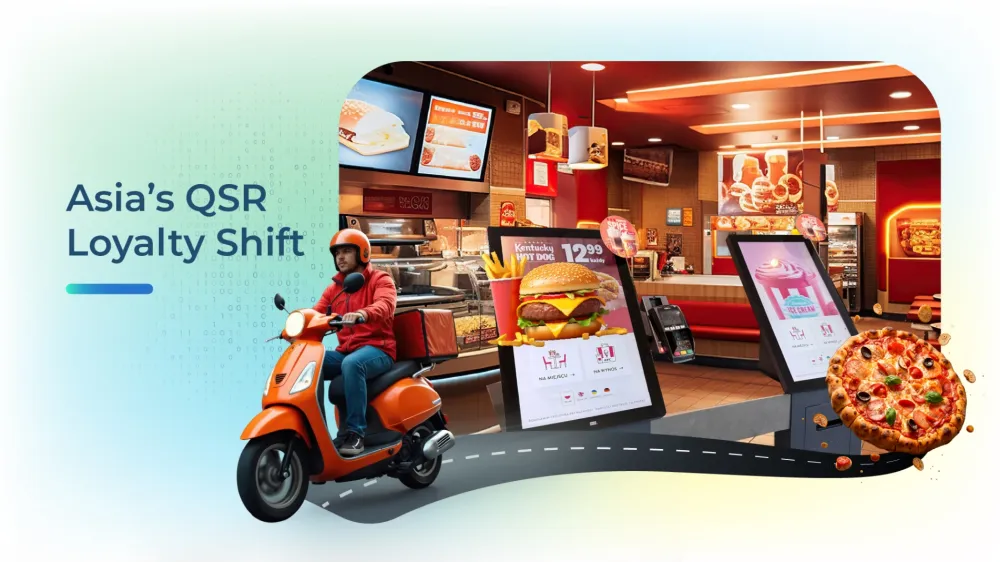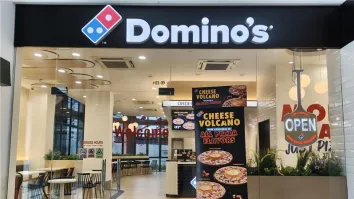Revolutionising Foodservice: Crafting Nutritious, Delicious and Sustainable Food & Beverage Solutions
By Simon HagueMultifaceted demand is driving the industry to innovate in different ways.
In the rapidly evolving food and beverage industry, creating products that are not only nutritious and delicious but also sustainably produced is a complex yet essential endeavour.
Modern consumers demand more from the products they buy, driving a fundamental shift towards healthier, environmentally friendly options without compromising on taste. For food and beverage brands and manufacturers, navigating this landscape involves integrating science, innovation, and a deep understanding of consumer preferences.
The 'AND' Consumer: Balancing Nutrition, Taste, and Sustainability
Today's consumers are characterized by what can be termed the 'AND' mindset—they want products that are nutritious and delicious, convenient, and affordable, local, and sustainably produced. This multifaceted demand is reshaping the industry, compelling brands to innovate in ways that were previously thought to be mutually exclusive.
One of the primary drivers of consumer choice is the demand for cleaner labels — products made with natural and recognizable ingredients.
An FMCG Gurus survey has shown that clean label is a top food trend in Asia with as many as 80% of consumers in the region open to it. This trend is not just about health but also about trust and transparency. Consumers want to know where their food comes from, how it’s made, what it contains, and generally prefer ingredients they can recognize. For manufacturers, this means sourcing high-quality, natural ingredients and minimizing artificial additives.
Despite the increasing focus on health and sustainability, taste remains paramount. The 2023 Food and Health Survey found that 86% of consumers globally say taste is the most important factor when choosing food. Achieving this requires a delicate balance of culinary expertise and scientific innovation to ensure that healthier options do not compromise on taste.
Sustainable Nutrition: A Holistic Approach
Sustainable nutrition goes beyond the nutritional profile of food. It encompasses the entire lifecycle of a product, including its environmental and social impacts. Brands must consider how their sourcing, production, and distribution practices affect the planet and society. This holistic approach ensures that the food we consume contributes positively to our health and the well-being of the planet.
Sustainability in the food and beverage industry starts with responsible sourcing. This involves selecting suppliers who adhere to sustainable practices, such as minimizing water usage, reducing carbon emissions, and promoting biodiversity. Sustainable sourcing and production practices protect ecosystems and promote biodiversity. This includes initiatives to reduce pesticide use, promote crop rotation, and support the cultivation of native plant species.
Supporting smallholder farmers through sustainable agricultural practices improves crop yields and reduces environmental impact, illustrating the benefits of a comprehensive sustainability strategy.
According to the 2022 Global Sustainability Study by Simon-Kucher & Partners, 89% of consumers globally have already shifted their purchasing behavior towards more sustainable options over the past five years. Additionally, manufacturers as well must invest in sustainable production techniques, such as using renewable energy and reducing waste.
One of the most significant sustainability challenges is food waste. Approximately one-third of all food produced globally is lost or wasted, according to the Food and Agriculture Organization (FAO). In the Middle East and North Africa, food waste per capita ranges from 150 to 250 kilograms per year, contributing to significant economic and environmental costs. Innovations in food preservation, such as extended shelf-life technologies and efficient supply chain management, are crucial in reducing this waste. For instance, technologies that extend the shelf life of products naturally reduce food waste and ensure that products remain fresh without artificial preservatives.
Supporting Sustainable Nutrition in Foodservice
The creation of sustainable, nutritious, and delicious food products is a testament to the synergy between science and culinary arts. Leveraging a broad range of core technologies, including flavor modulation, fermentation, and natural extracts, enables the development of products that meet high standards of taste, nutrition, and sustainability.
For example, Kerry's smoke and taste technologies are pivotal in creating products that offer rich, authentic flavors while maintaining clean labels. These technologies not only enhance the taste profile of products but also cater to the growing consumer demand for natural and transparent ingredients.
Additionally, our proactive health solutions provide functional ingredients that support overall well-being, such as immune support and digestive health, which are increasingly sought after by health-conscious consumers.
Solutions such as plant-based protein formulations help brands create nutritious and delicious products that meet consumer demands for sustainability. Clean Label Preservation technology extends the shelf life of products naturally, reducing food waste and ensuring that products remain fresh without artificial preservatives.
In the foodservice sector, integrating sustainable nutrition into menu offerings is crucial in satisfying consumers who seek ethical consumption. Providing tailored solutions to foodservice operators can help them develop menu items that are not only delicious and nutritious, but also have a lower environmental footprint.
Food waste, the environmental impact of meat and dairy products and single-use plastics are some of the key challenges facing the foodservice industry.
Central to Kerry’s Beyond the Horizon sustainability strategy is the reduction of food waste and the promotion of meat and dairy-free alternatives as part of a broader move towards sustainable nutrition. This approach is not only in response to consumer demand but also aligns with global environmental goals.
The conversation on food packaging and its environmental repercussions has taken centre stage. With global recycling rates hovering around 9% and plastic use expected to triple by 2060, according to OECD projections, the need for action is critical.
Our initiatives are designed to help customers reduce the ecological footprint of packaging, with the aim to divert 96% of food waste from landfills globally—a goal that has been achieved by many of our factories in Asia. In 2023, 96% of our food waste was diverted from landfills globally, with many Asian factories hitting the 100% mark. In addition, we’ve achieved a global reduction of 48% in scope one and two emissions since 2017, earning a spot in the top 10 list at the World Benchmarking Alliance for our sustainability efforts.
The Path Forward
Creating food and beverage products that are nutritious, healthy, delicious, and sustainably produced is not just a trend—it's a necessity for the future.
Brands and manufacturers must embrace a holistic approach, integrating responsible sourcing, innovative production techniques, and consumer-centric strategies. Sustainability transcends the planet; it encompasses our people and the communities we operate in. It's about fostering cultural change and altering habits. As the food and beverage industry continues to evolve, the principles of sustainable nutrition will remain at the forefront, guiding us towards a more sustainable and healthier future.

























